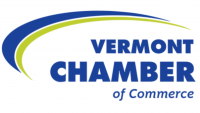Ensuring a Safe Environment for Vermont Visitors
The House Committee on General, Housing and Military Affairs continued work on S.210, a bill containing a number of items aimed at improving rental housing health and safety. A long-time advocate for equity in the lodging landscape, the Vermont Chamber testified in support of a mechanism that would collect basic contact information for short-term rental (STR) operators providing overnight accommodations to the traveling public.
While short-term rentals contribute positively to Vermont’s economy, they operate in a relatively unregulated environment. For example, licensed lodging properties are required to post licenses and evacuation route diagrams in an obvious location, and to have inspected portable fire extinguishers. By comparison, short-term rentals simply have a self-attestation that is retained onsite and have no evacuation route or fire extinguisher requirements. While there are good hosts in the short-term rental industry that go above and beyond baseline health and safety measures, creating or enhancing these measures should not be withheld because there are good players within an industry. Public health and safety measures are meant to ensure a safe rental environment for all and to protect the traveling public.
This is a policy issue that is not unique to Vermont. Rhode Island has created a new statewide mandatory registration program for STRs listed for rent with hosting platforms. The foundation set by collecting basic STR information would be a positive step forward to ensure a safe rental environment and move towards equity in the lodging marketplace.
SHARE THIS ARTICLE
RECENT NEWS





